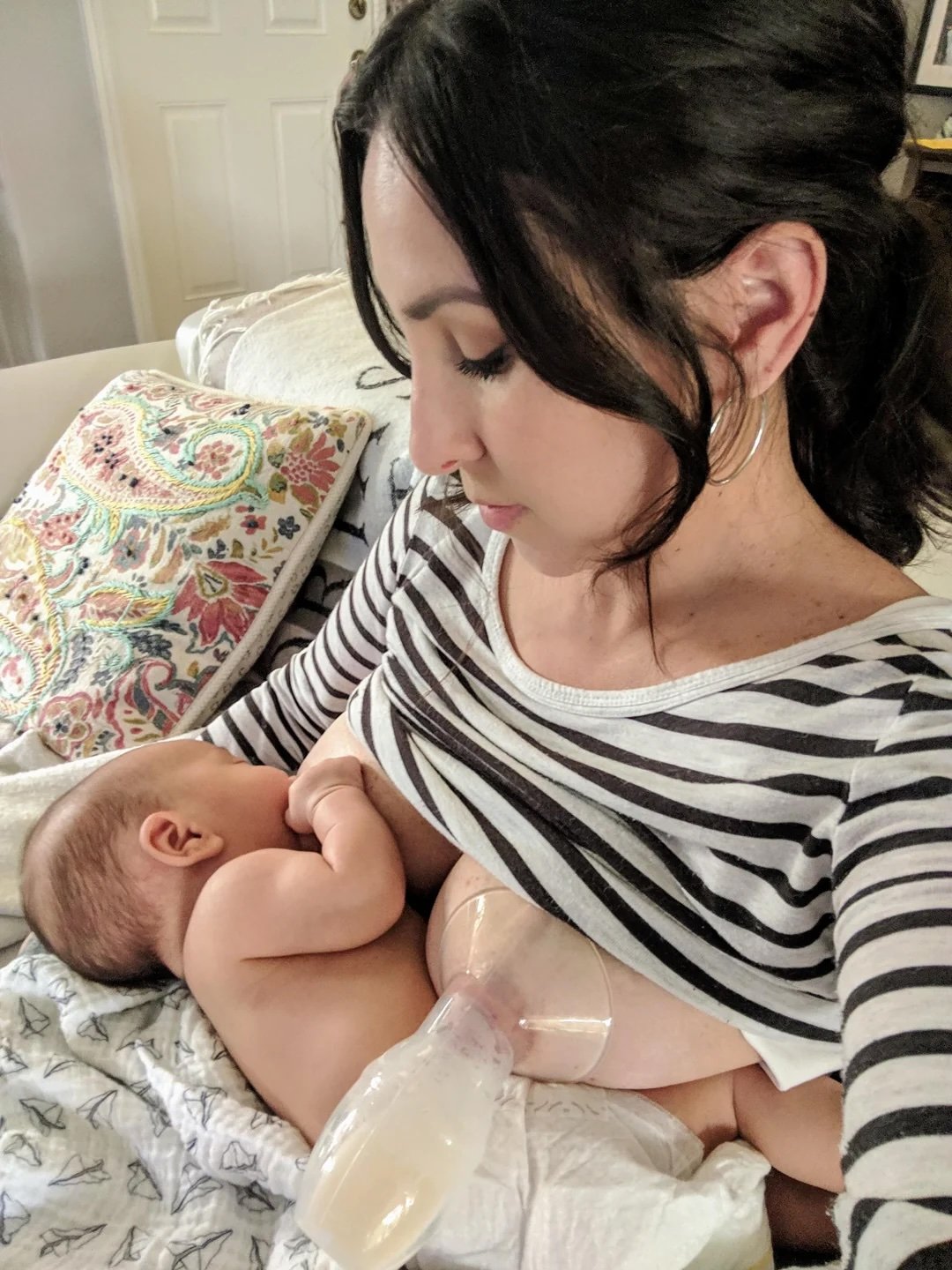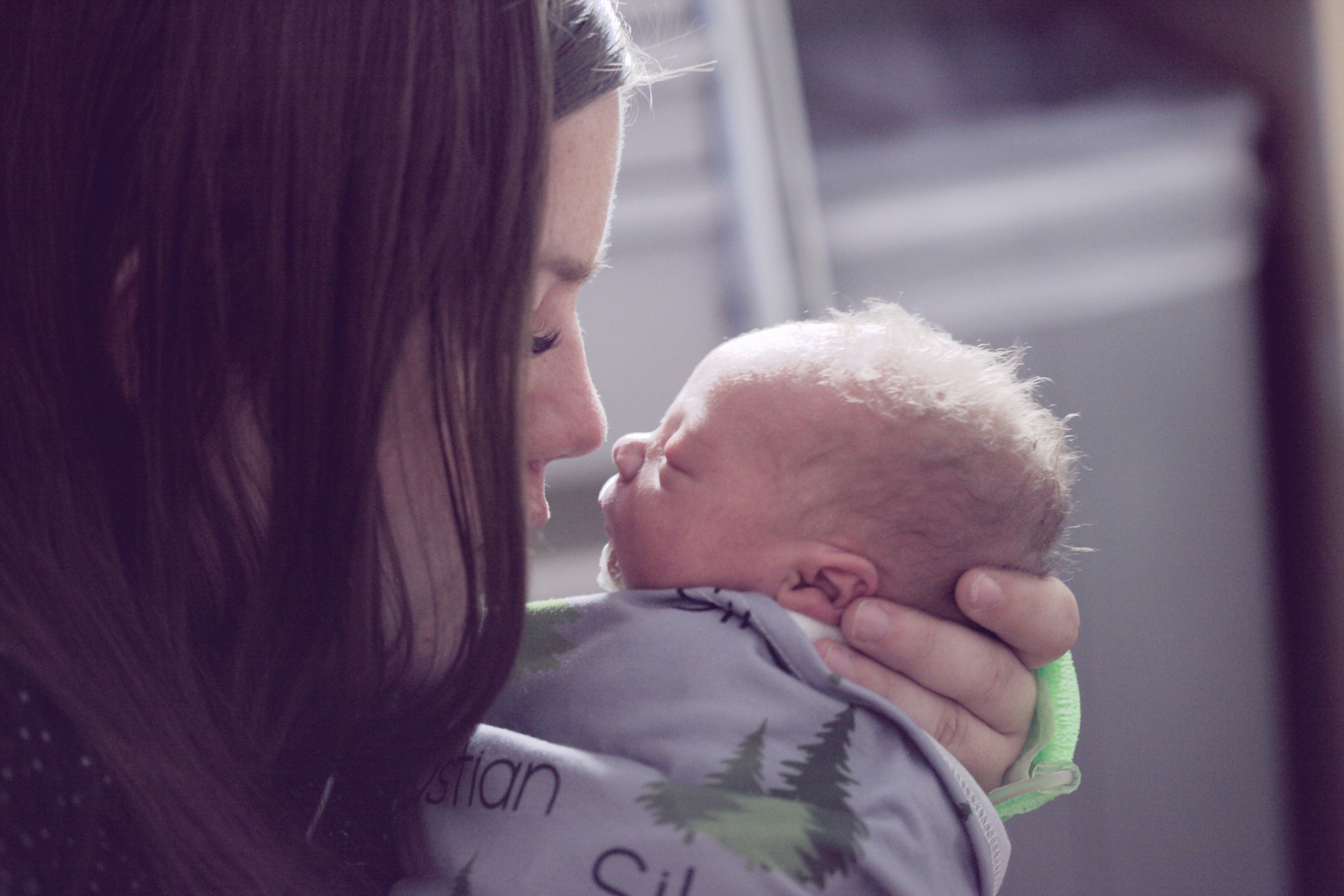
CHOOSING THE RIGHT BRA AFTER BABY
Everyone loves shopping for baby clothes and adding fun things to their baby shower gift registry, but don't forget to take care of yourself and ensure your own comfort during the postpartum period!

THE BENEFITS OF BREASTFEEDING WHEN YOUR BABY IS SICK
One of the amazing things about breastfeeding is that your body adjusts to meet your baby’s needs. When your baby is sick, your body actually produces more antibodies in your breast milk to help fight off the specific germs they are exposed to. This makes fresh breast milk incredibly beneficial when your baby is ill. The closer to the time of nursing that milk is produced, the more potent these protective properties will be.

TO HAAKAA OR NOT TO HAAKAA
The Haakaa has become a popular gift at baby showers and a commonly recommended tool for new moms. It’s marketed as an easy, hands-free way to collect milk, and it can indeed be very convenient. However, as with any tool, it’s important to understand both its benefits and potential drawbacks before incorporating it into your breastfeeding routine.

DO YOU REALLY NEED A FREEZER STASH?
Chicagoland breastfeeding expert Dr. Cindy Rubin takes on the topic of the freezer stash in this blog article. The Internet and Social Media have made breastfeeding people think they need to build a freezer stash and that having an overly plentiful milk supply is desirable. Pumping to create a freezer stash signals your body to produce more milk than your baby needs at that moment. While this may seem beneficial, it can lead to issues if you're making a larger breast milk supply than your baby requires. Overproduction can result in blocked ducts, mastitis, nipple blebs, nipple pain, and general breast discomfort.

EXPECTATIONS AS A FIRST TIME MOM
Being prepared to be unprepared when you are going to have a baby is probably the best approach. Get used to the idea that things won’t go as planned, and that’s okay. Don’t feel alone. Seek support—there are so many ways to get it. Some you may not realize you will need, but some kinds of support are universal. Line up people to bring you meals or do your grocery shopping for you.

What is the difference between a Board-Certified Breastfeeding and Lactation Medicine Physician and a Lactation Consultant?
Breastfeeding is a deeply personal and sometimes challenging journey, and having the right support can make all the difference. Sometimes new mothers find themselves confused when seeking help to ensure they and their babies can enjoy a successful breastfeeding experience.

WHO NEEDS A PRENATAL LACTATION CONSULT?
Even if you have no history of breastfeeding difficulties or concerns, gaining knowledge about how the first days and weeks after birth typically go, what to expect, and how to prepare can be very empowering. This information can lead to a more positive and informed breastfeeding experience, and overall better mental health. Feeling prepared is empowering in itself, and having appropriate and realistic expectations for your breastfeeding journey can really make a difference in preventing postpartum depression or anxiety.
Certain individuals, however, may particularly benefit from a breastfeeding medicine or lactation consult due to specific risk factors.

ARE YOU STUCK IN TRIPLE FEEDING PRISON?
Triple feeding can be a complex and exhausting routine. The postpartum period is hard no matter what. When you add on extra steps to already exhausting newborn care, your breastfeeding journey may start to feel untenable. It's essential to have the support of a lactation professional, your pediatrician, and/or a perinatal mental health professional to monitor your progress, provide YOU with support, and make necessary adjustments. They can provide guidance tailored to your unique situation and personal experience, ensuring both you and your baby thrive.

THERE IS NO SUCH THING AS A LAZY BABY
I want to address a term that often surfaces in consultations and pediatric visits: "lazy baby." I believe this term is not only inaccurate but also unhelpful. It suggests a negative connotation and unjustly assigns blame to your infant for challenges in breastfeeding, which is unfair and unfounded.

Breastfeeding While You Are Sick
As a Breastfeeding and Lactation Medicine physician, I often encounter questions from new mothers about the impact of their health on breastfeeding. One common concern is what to do when you're sick. It's a natural instinct to want to protect your baby from illness, which might lead you to consider stopping breastfeeding or even isolating from your child. However, the science suggests a different approach. Successful breastfeeding can and should continue despite maternal illness.
